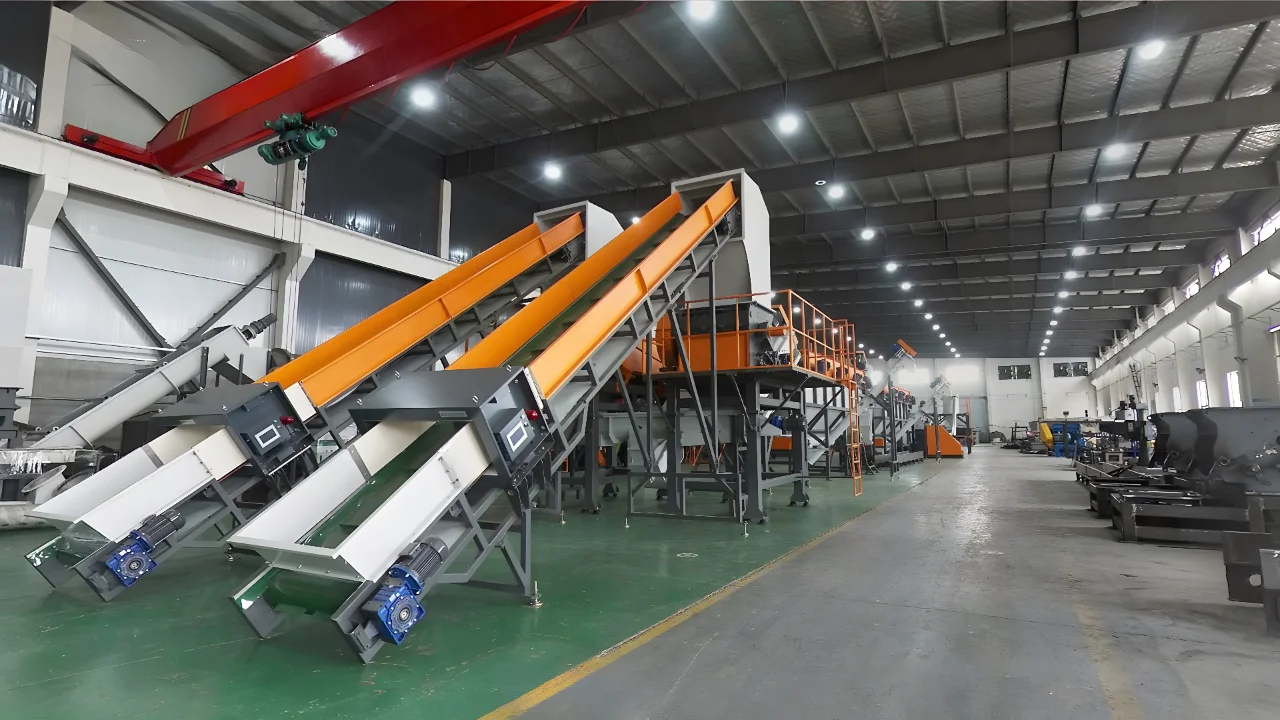The advent of plastic has undeniably made our lives more convenient, yet its environmental repercussions are increasingly concerning. While traditional recycling efforts have progressed, the challenge of recycling certain plastics remains due to contamination from food residues, labels, and mixed materials. These contaminants often make plastics unsuitable for conventional recycling methods. However, the tide is turning with the introduction of advanced plastic recycling washing systems. These innovative solutions are redefining the recycling landscape by converting previously non-recyclable plastics into valuable commodities.
Contents
The Challenge of Recycling: The Role of Contamination
Envision a conveyor belt inundated with plastic waste, including yogurt containers, plastic wrap, and chemical bottles. These items have the potential for reuse, but are often marred by persistent contaminants such as food residue and adhesives. Traditional cleaning systems frequently fail to fully remove these pollutants, resulting in materials that are discarded into landfills. This wastefulness not only deprives us of precious resources but also exacerbates environmental strain.
The Solution: Sophisticated Washing Systems
The emergence of advanced plastic recycling washing systems marks a significant advancement. These systems, armed with cutting-edge technology, are adept at overcoming contamination. They feature:
- Multi-stage Washing: Recognizing that a one-size-fits-all strategy is ineffective, these systems adopt a comprehensive approach. By employing hot water, detergents, and friction washing, they ensure the removal of even the most stubborn dirt.
- Friction Washing: This method operates similarly to an advanced car wash but is designed for plastics, using rotating elements to scrub away persistent adhesives and residues.
- Density Separation: Acknowledging the diversity in plastic materials, these systems utilize density separation to sort and treat plastics according to their specific needs, enabling more precise and effective cleaning.
The Impact: Paving the Way for a Greener Future
The benefits of these advanced washing systems extend well beyond simply addressing contamination. They are instrumental in transforming the plastic recycling industry by:
- Enhancing Material Quality: The removal of impurities results in the production of cleaner, high-caliber recycled plastics, broadening their application scope.
- Boosting Recycling Rates: These systems have the potential to dramatically increase recycling rates by processing materials previously deemed non-recyclable, thereby reducing landfill waste.
- Diminishing Virgin Plastic Dependence: The improved quality of recycled materials allows for their reintegration into production cycles, lessening the need for new plastic production and reducing the industry’s environmental impact.
Looking Forward: The Future of Plastic Recycling
While the fight against plastic pollution is ongoing, advanced washing systems shine as beacons of hope. By effectively dealing with contamination, they are laying the groundwork for a more sustainable, circular plastic economy. The adoption of these technologies by recycling facilities signifies a step toward a future where plastic waste is not seen as a burden but as a resource.
A Call to Action
For recycling or processing facilities aiming to overcome contamination challenges and revolutionize their operations, exploring the latest in plastic washing technology is a step toward a more sustainable tomorrow. Engaging with leading manufacturers Rumtoo Recycling Machinery ,can provide insight into how these groundbreaking technologies can enhance your operations and contribute to a more eco-friendly future.




